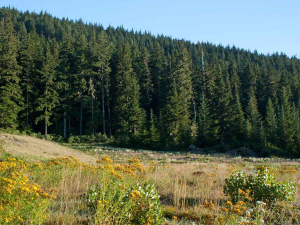New rules fall short of delivering a level playing field when overseas investors buy New Zealand farmland for forestry, farmers say.
Federated Farmers Gisborne-Wairoa president Toby Williams says it’s a ‘step in the right direction’ to scrap the much-criticised special forestry test.
Instead, overseas investors purchasing farmed land for conversion to forestry would be required to meet the Overseas Investment Office ‘general benefit to New Zealand test’.
“But it will continue to be an uneven land-use playing field because investors buying farmland to continue to raise crops and livestock run up against the much more stringent Farm Land Benefit test,” Williams says.
Speaking to the Finance & Expenditure Select Committee on the Overseas Investment (Forestry) Amendment Bill yesterday, Williams said the general benefit test that would apply to forestry conversions “provides a slightly higher hurdle but it is nothing like as onerous as the farmland test.
“In our view it’s very strange that conversions of farmland will not, under this Bill, be considered under the farmland test. Farmland is farmland after all.”
According to an independent study commissioned by Beef + Lamb NZ, in 2017, 3,965 hectares of entire sheep and beef farms were sold into forestry. That jumped to 20,227ha in 2018 and 36,824 in 2019. The dampening impacts and uncertainty of COVID saw a decrease to 24,864 of farmland sold for forestry in 2020, and 14,219 in the first six months of last year.
The researchers said based on discussions with real estate agents, land sales across 2021 were expected to exceed those of 2019 - meaning an amount of exotic planting that will far exceed what the Climate Change Commission projected as a sustainable amount (25,000 ha/pa).
Williams told the select committee that when productive farmland is swallowed up by forestry, especially pines planted for carbon credits that are not pruned and eventually harvested, the cuts into the lifeblood of rural communities are deep.
He said decline escalates and it’s harder to attract staff and shearing gangs to the farms that struggle on. Those looking to buy farmland are outbid by forestry investors chasing carbon income by a factor of two or three.
"By allowing overseas investors to buy land, convert to forestry, sell credits and take the funds back off shore you are allowing wealthy overseas investors the opportunity to get richer through the ETS. All while the most vulnerable in NZ rural communities suffer through loss of jobs, schools and communities," Williams said.



















